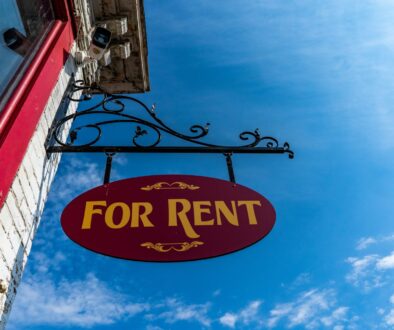Commercial Property Lease Renewals and Minimum Energy Efficiency Standards (MEES): An unclear picture
Commercial Property Lease Renewals and Minimum Energy Efficiency Standards (MEES): An unclear picture
Regulation 6 of the Energy Performance of Buildings (England and Wales) Regulations 2012 (the 2012 Regulations) provides that, where a building is to be sold or let, a valid energy performance certificate (EPC) must be made available.
Guidance produced in 2015, and updated in December 2017, by the Ministry of Housing, Communities and Local Government in respect of EPCs for the construction, sale and let of non-dwellings (the 2015 Guidance) states that the duties in respect of providing an EPC during the sale or renting process (under Regulation 6 of the 2012 Regulations) do not apply to Lease Renewals.
However, Regulation 27 of the Energy Efficiency (Private Rented Property) (England and Wales) Regulations 2015 (the 2015 Regulations) provides that:
- from 1 April 2018, a Landlord must not let sub-standard non-domestic private rented (NDPR) property
- from 1 April 2023, a landlord may not continue to let such a property.
‘Let’ for these purposes is expressed to include Lease Renewals.
Under Regulation 22, an NDPR is sub-standard where a valid EPC shows that the property is below the minimum required band E rating.
Guidance produced in February 2017 by the Department for Energy Security and Net Zero (previously known as the Department for Business, Energy and Industrial Strategy) in respect of the NDPR property minimum standard (the 2017 Guidance) provides that the minimum standard obligations in the 2015 Regulations apply to all NDPR properties which are:
- let under any type of tenancy, and
- which are legally required to have an EPC.
The 2017 Guidance goes on to emphasise that the minimum standard provisions only apply to NDPR properties which are legally required to have an EPC.
One interpretation of the combination of the 2012 Regulations, the 2015 Guidance, the 2015 Regulations and the 2017 Guidance is that, even though the 2015 Regulations are expressed to include Lease Renewals, the obligations under them are only triggered in respect of situations where the property is legally required to have an EPC.
Under the 2012 Regulations, there is from a statutory perspective a legal obligation to provide an EPC upon all lettings. An ordinary interpretation of a letting may arguably include a Lease Renewal.
However, the 2015 Guidance states that a Lease Renewal will not be considered to be a sale or a let to which the EPC duties apply.
On the basis of that interpretation, and if the 2015 Guidance is being relied on:
- If an EPC already exists in respect of a business tenancy:
◦ from 1 April 2018, if prior to a renewal the premises fell below the minimum band E rating, the Landlord was obliged to ensure that the rating is brought up to the minimum level before granting a new lease
◦ from 1 April 2023, in respect of any ongoing tenancy the Landlord is obliged to ensure that the rating is brought up to the minimum level immediately.
2. If there is no existing EPC certificate in respect of a business tenancy:
◦ from 1 April 2018, the obligations under Regulation 27 of the 2015 Regulations are not triggered and the Landlord is not obliged to obtain an EPC prior to renewal
◦ from 1 April 2023 it is arguable that, unless and until there is a trigger event, i.e. a sale or rental falling within Regulation 6 of the 2012 Regulations, the MEES requirements regarding letting of sub-standard properties are still not triggered.
However, an alternative view is that it was intended that the 2015 Regulations should apply to Lease Renewals, given that ‘let’ is specifically defined to include them.
As a result, there is a risk:
- that the courts may reach a different interpretation of the 2012 Regulations, i.e. by finding that Lease Renewals do in fact fall within them, despite the 2015 Guidance, and/or
- of the 2015 Guidance being updated again, this time expressly bringing Lease Renewals within the definition of sales and letting in the context of the EPC duties.
As such it is, upon a Lease Renewal, ordinarily sensible to seek to update a Landlord’s rights (for example rights of entry to carry out works required to bring the property up to an EPC minimum band rating of E or above, and thereafter to enter and maintain, so as to ensure that the rating remains at the required level) and (where appropriate) service charge provisions to take account of the Regulations.
If an existing Lease’s terms do not contain provisions to allow the Landlord to enter the Property to undertake necessary works, the Landlord would have to rely on the court’s discretion under section 35 of the Landlord and Tenant Act 1954, to impose terms “having regard to the terms of the current tenancy and to all relevant circumstances”.
In balancing the Landlord’s statutory requirements/obligations and the Tenant’s security of tenure, one possible route is for the court to order:
- temporarily expanded rights of entry to enable the Landlord to carry out the initial works necessary to bring the Property up to the requisite standard
- that the new Lease contains sufficient additional entry and service charge provisions to allow for any ongoing repair and maintenance, and
- payment of sufficient compensation to cover any consequent interruption to the Tenant’s business.
If there is an EPC in place in respect of a Lease Renewal from 1 April 2018 onwards, and accordingly the MEES requirements are triggered, the Landlord is entitled under the 2015 Regulations to register a temporary exemption in order to allow a further six-month period to bring the premises up to the requisite standard.
If the Landlord does grant a new lease in breach of the 2015 Regulations obligations, that breach will not affect the validity or enforceability of any provision of the tenancy. However, this is not advisable and would leave the Landlord exposed to liability under the enforcement and penalties provisions.
The 2017 Guidance also clarifies that, if premises have a sub-standard EPC rating, this will not be grounds for opposing the grant of a new Lease under the 1954 Act.
(This article is not intended to be comprehensive or to provide specific legal advice. It should not be relied upon in the absence of specific advice given in relation to particular circumstances.)
For further information, please contact: Natalie Linehan, Andrew Williamson or David Thorp




